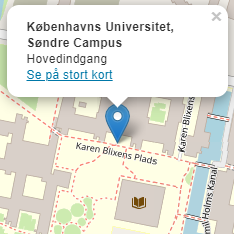Suverænitetens umulighed og det glemte folk i Grønland
En livsformsanalyse af selvstyreprocessen med udgangspunkt i fangst- og fiskerisektoren
Gry Søbye forsvarer sin ph.d.-afhandling.
I 2009 fik Grønland selvstyre, og det grønlandske folk blev anerkendt som et nationalt selvbestemt folk. Meget blev efterfølgende sagt om Grønlands nye status i Arktis, mindre om hvad Selvstyret betød for det grønlandske folk og dets livsformer. Sidstnævnte undersøger denne ph.d.-afhandling med udgangspunkt i livsformsanalysen. Det empiriske undersøgelsesfelt er afgrænset til fangst- og fiskerisektoren. Der er med udgangspunkt heri tale om en diakron analyse af forholdet mellem statsdannelsesproces, produktionsmåder og livsformer på baggrund af historiske kilder fra kolonitid til selvstyretid, samt en synkron analyse på baggrund af et etnologisk feltarbejde i Grønland (2011-2013).
Afhandlingen viser bl.a., hvordan Selvstyrets satsning på udenlandske investeringer inden for både fiskeri- og råstofsektoren kan anskues som et middel i kampen om at blive anerkendt som en national selvbestemt enhed og på sigt en stat. Denne strategi forandrer imidlertid vilkårene for de livsformer, som får mulighed for at reproducere deres eksistensform i Grønland. En overordnet pointe er derfor, at kampen for selvstændighed ændrer vilkårene for livsformerne. Afhandlingen undersøger både hvorfor og hvordan.
In 2009, Greenland gained self-government, and the Greenlandic people became recognized as a national self-determined people. Much was subsequently said about Greenland's new status in the Arctic, less about what the Self-Government meant to the Greenlandic people and their life-modes. This PhD thesis examines the latter based on the life-mode analysis. The empirical field of study is limited to the catch and fisheries sector. The examination involves a diachronic analysis of the relationship between state formation process, modes of production and life-modes based on historical sources from colonial times to self-government, and a synchronous analysis based on an ethnological fieldwork in Greenland (2011-2013).
The dissertation shows how the Self-Government's strategy of foreign investments in both the fisheries and mining sector can be viewed as a means in the struggle to be recognized as a national self-determined entity and in the long term a state. However, this strategy changes the conditions for the life-modes that are allowed to reproduce their forms of existence in Greenland. A general observation is therefore that the struggle for independence is changing the conditions for the life-modes. The dissertation examines both why and how.
Bedømmelsesudvalg
- Lektor Astrid Pernille Jespersen, formand (Københavns Universitet)
- Lektor Lill Rastad Bjørst (Aalborg Universitet)
- Professor Klaus Schriewer (Universidad de Murcia)
Leder af forsvarshandlingen
- NN
Et antal eksemplarer af afhandlingen vil blive fremlagt til gennemsyn inden forsvaret på Københavns Universitetsbibliotek, Søndre Campus og til gennemsyn på Det Kgl. Biblioteks læsesal Øst, Diamanten samt på Saxo-Instituttet (Saxo), Karen Blixens Plads 8, 2300 København S

